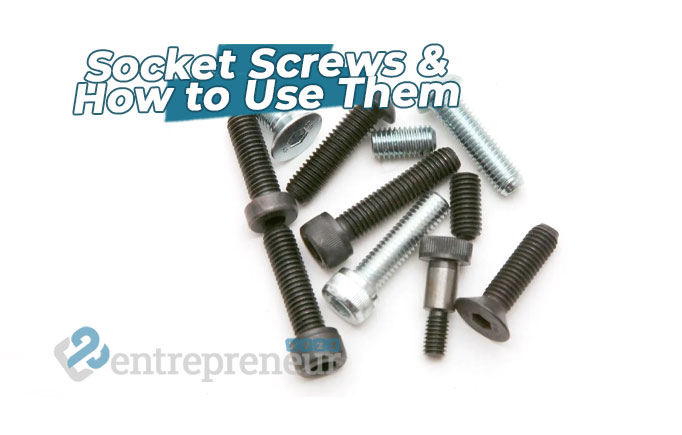Screws are little fasteners that are used for all different kinds of purposes. Whether it’s holding together your favourite gadget or fixing together a piece of furniture, these devices are all around us and are responsible for a lot. Screws are not only useful, but they’re incredibly versatile too, and there are many different shapes, sizes, and types.
In your business, you’ve probably used screws at some point, possibly without even noticing. But what are socket screws, and what do they do? In this article, you’ll be able to find out the answers to these questions, as well as how you can use these ingenious devices in your next big project.
What is a Socket Screw?
Socket screws may look like regular screws at first glance, with a thread that extends along their length. However, the head of these screws sets them apart. While most screws have either a flathead or a Phillips head, these have a cylindrical head that contains a small, recessed hexagonal hole known as the hex drive.
The hex drive means that instead of using a screwdriver, socket screws can be tightened and loosened with an allen wrench or hex key. In addition to their head, another key difference of socket screws like these is that they’re usually squared off at the tip. This means that rather than having a sharp, pointed tip, they’re flat instead.
However, it’s important to note that you can find many different types of socket screws, so the main feature to look out for is the hex drive on the head of the screw. The unique characteristic of the socket screw presents several key advantages that make it worth using in your next project.
How to Use Socket Screws
If you’re thinking of fastening something in your business, you’re going to usually require some kind of screw. How do you know what type of screw to use, and could the socket screw be your answer? Below are some of the main advantages that these screws offer.
Greater Torque
Screws are well known for being able to fasten two materials together with a lot of force, making them extremely unlikely to come undone when applied correctly. In some situations, greater torque and clamping force may be required, which is where a socket screw can come in handy. These specialised screws can deliver greater torque, leading to a tighter and stronger fasten.
Lower Costs
Because socket screws offer more clamping force, you typically won’t need many of them to complete a project. You can use a few socket screws to do the work of multiple regular screws, saving you costs as you won’t need to buy as many screws or spend as much time putting them in. Despite the lower costs, the project will still be completed to the highest standard.
Lighter Weight
Using fewer screws not only means lower costs, it also means lower weight too. When you’re creating a product for your business, the weight of the product should be a concern. Not only will this affect how functional the item is to use, but it may also affect postage costs. By using fewer screws, you can have a lighter product which is hopefully easier to use too.
Different Types
There are lots of different types of socket screws out there, all of which are capable of performing different functions. This makes them suitable for a wide range of project types, giving you more options over which screw you’ll use. For example, button head socket screws provide an even greater amount of clamping force while also being suitable for certain aesthetic purposes.

